When Nations Unite: The BRICS Development Bank
You’ve probably seen the images of a gunned-down airplane in Ukraine by a surface-to-air missile, and have heard many different sides of the story on who’s responsible.
Obama blames Russia and Putin blames Ukraine.
The answer to whose responsible will likely never be known – except by those involved.
However, what we do know is that – as I mentioned many times over – the battle between the United States and Eastern nations has never been more intense in our modern era.
What we are witnessing is a full-on geopolitical war, fought with everything from guns and missiles to financial instruments.
These events may seem like isolated events but they are not, and they will impact us in very dramatic ways.
This week’s Letter is long, but its extremely important. I strongly suggest you read all the way through.
Tired of Being Slaves
Emerging economies have had enough of being slaves to a currency that has unlimited production, controlled by one organization.
This control has turned rivals into allies with a common goal of diversification away from the dollar.
It may be hard to grasp the concept of a world not ruled by the dollar, but what we are witnessing in the form of civil wars in the Middle East, to Ukraine and Syria, is a fight for exactly that: de-dollarization.
The dollar currently represents more than 60% of the world’s foreign reserve holdings. Its distribution has allowed the U.S. to enjoy substantial advantage over every nation in the world.
American lenders have been able to use the dollar’s strength to control emerging markets by making loans with strong contingencies to nations who simply can’t afford to ever pay those loans back.
As I mentioned in my Letter, “The Real Reason for War in Syria“:
“Currency manipulation allows developed countries to print and lend to other developing countries at will.
A rich nation might go into a developing nation and lend them millions of dollars to build bridges, schools, housing, and expand their military efforts. The rich nation convinces the developing nation that by borrowing money, their nation will grow and prosper.
However, these deals are often negotiated at a very specific and hefty cost; the lending nation might demand resources or military and political access. Of course, developing nations often take the loans, but never really have the chance to pay it back.
When the developing nations realize they can’t pay back the loans, they’re at the mercy of the lending nations.
The trick here is that the lending nations can print as much money as they want, and in turn, control the resources of developing nations. In other words, the loans come at a hefty cost to the borrower, but at no cost to the lender.”
There’s no doubt that much of this would have never happened if the dollar didn’t rule. And because of its status, the dollar also enables the Fed to limit the growth of emerging markets by contracting the money supply at will.
But that’s rapidly changing.
The dollar in foreign holdings has been on a steady decline over the last decade, and a substantial decline will likely take place in the very near future; thus, affecting everything from our investments and our wealth, to our social well-being.
Countries Fight Back
For many years, the dollar has enjoyed its power.
But with power comes greed, and with greed comes suffering.
And some of the world’s largest economies have suffered enough.
World Bank and IMF – We’re Coming for You
Just last week, five of the biggest major emerging national economies, Brazil, Russia, India, China, and South Africa (BRICS) signed a long-anticipated document to create a $100 billion BRICS Development Bank, with headquarters in Shanghai.
The institution will counter the influence of Western lending firms as well as the dollar, and give way for developing economies to grow without being forced into unfair terms from Western lending firms.
The creation of this bank is not only a direct threat to the dollar, but also a direct threat to the United States and its control over emerging economies.
Recall the Bretton Woods summit in 1944 that became the basis for the modern system of central banking and foreign exchange as well as the creation of both the World Bank and the IMF.
Their creation gave Western powers control of the world through loans to nations that simply could not afford to pay them. In the end, many of these nations are forced to privatize state-owned assets in order to fulfill their debt obligations.
In other words, it’s a politically correct way to seize the assets of a country and hand them over to corporations and bankers for profit.
Just ask Argentina.
With the creation of the BRICS development bank, emerging nations now have a choice outside of Western policies.
China’s official Xinhua news agency said in an editorial that the agreement ushers in a long-awaited alternative to the “Western-dominated institutes in global finance.”
From Russia’s perspective, via RT:
“Nobel Prize-winning economist Joseph Stiglitz has praised the new development bank founded this week by the BRICS countries for creating a financial institution that could counter the Western-dominated IMF and World Bank.
Stiglitz, a professor at Columbia University and former chief economist for the World Bank, said the New Development Bank marks a “fundamental change in global economic and political power.”
He added that the effort by Brazil, Russia, India, China, and South Africa (BRICS) could revitalize the way funds are distributed to developing nations in a changing global economy that the “old institutions” like the International Monetary Fund and the World Bank have not adequately recognized.”
The development of the BRICS Development Bank gives poor developing nations (may I add resource rich) the option to potentially receive better lending terms. In addition, these nations no longer have to rely on the harsh lending terms from Western banks.
In other words, the BRICS are telling the world that it no longer has to rely on the dollar and Western banks to grow.
And they are all unilaterally engaging other economies to do the same.
What do you think of this bank?
Putin’s Roadshow
Putin just kicked off his Latin America trip to gain further support around the world.
But he’s not only gaining allies, he is pursuing those who have a bone to pick with the West.
Take Cuba.
Putin has agreed to write off 90% of Cuba’s debt to Russia, which is equal to $32 billion. In exchange, Russia gets to reopen an electronic eavesdropping post in Cuba that closed more than a decade ago.
Earlier, I mentioned Argentina. Argentina has already privatized much of its public infrastructure, such as its water services, to the West in order to meet loan obligations.
It’s no wonder that Putin has made it very clear that Argentina would be one of major focus in Latin America.
Via Russia Beyond the Headlines:
“The Russian president had larger-scale meetings with the leaders of Argentina and Brazil.
According to Putin, modern-day Argentina is one of Russia’s top partners in Latin America. “Our countries have similar positions on key international problems, and together they defend the principles of a multi-polar world, equal rights, mutual respect, and the indivisibility of security,” Putin said in Buenos Aires.
Argentinian President Cristina Fernandez de Kirchner is one of the few world leaders to have expressed solidarity with the Russian position on Crimea. Fernandez publicly rebuked the West for what she saw as double standards regarding the referendums in Crimea and the Falkland Islands.
The negotiations in Buenos Aires featured discussions of joint projects in energy, transport, civil aviation, the peaceful use of outer space, and healthcare. Putin and Fernandez signed intergovernmental agreements on nuclear energy and jurisprudence, as well as an interagency contract on mass communications.”
Clearly, Russia and the BRICS nations are on a worldwide hunt for allies…and they’re succeeding.
This is a direct threat to the dollar’s value.
But it doesn’t stop there.
Shoot Me
For the past few years, I have given you many examples of how nations are beginning to move away from the dollar in international trade.
As you recall from my past letters, the dollar enjoys its power because of the liquidity it provides to foreign nations when buying or selling goods.
But being the world’s reserve currency also has other benefits. It has the ability to impede the growth of other nations – in particular, the rise of Eastern nations.
Attack Through Sanctions
This week, the U.S. issued another round of sanctions against Russia for its continued role in Ukraine.
Via Time:
“The new sanctions, the first so-called “sectoral sanctions” used by the U.S. against Russia hit two banks, Gazprombank OAO and VEB, and two Russian energy firms, OAO Novatek and Rosneft, limiting their access to the United States’ capital markets.
Also sanctioned by the U.S. Wednesday are the self-proclaimed Donetsk People’s Republic and the Luhansk People’s Republic, as well as the top general in Russia’s FSB security service, reportedly a leading separatist supporter within the FSB. Eight state-owned defense and technology firms dealing in arms or related material sector in Russia are also included.”
These sanctions pose a direct threat to Russia and are an international symbol of “don’t f%# with us” by the U.S.
It also means the U.S. is growing increasingly worried about Russia’s forward progress.
Again, recall that Ukraine is a primary energy corridor of significant importance. I strongly suggest you go back and read my letters to get a better understanding of what the real battle in Ukraine and Syria is all about.
You can do so by clicking the following links:
The Real Reason for War in Syria
The Real Reason for War in Ukraine
In American media, the sanctions are about Russia and its “unlawful” stance in Ukraine.
In Russian media, the sanctions are simply about gas sales between Russia and the U.S.
Via RT:
Its one thing for the U.S. to sanction Russia, but what happens when the U.S. targets Western nations?
What happens when Russia, and the other BRICS nations, gains support from Western powers?
CLICK HERE to Share Your Thoughts
United States Threatens France
By now you’ve likely heard about the record $8.9 billion fine against BNP Paribas, France’s largest bank and one of the largest banks in the world, for working with countries subject to US sanctions.
This was a severe punishment aimed at sending a clear message to other financial institutions around the world that decide to engage with countries sanctioned by the U.S.
In particular, it was likely a direct threat to the French for selling Mistral-class warships to Russia – even after the United States told them not to.
In a few months, France will be handing Russia keys to one of the world’s most advanced warships, at a time when the battle over energy corridors between the U.S. and Russia has never been greater.
“…With two Mistral carriers in its arsenal, the Navy would be able to drop a battalion of marines and armor on any coastline within 10,000 kilometers of its home port without refueling, provide helicopter support for those forces, and orchestrate an entire operation from the ship’s advanced control center.
…Aside from Russia’s new access to technology, the future of the Black Sea Fleet also weighs heavy on Western minds, with the annexation of Crimea sparking fears that Moscow has designs on retaking its lost empire.
…Before the overthrow of Ukrainian President Viktor Yanukovych and his pro-Moscow regime in February, Russia felt that its naval influence has been significantly hindered by Kiev.
…Now, with Crimea under Russian control, the threat to Russia’s strategic presence in the Black Sea has subsided.
Barabanov said the Black Sea is crucial for Moscow because of “major areas of conflict” that exist for Russia in Crimea, Ukraine and Georgia. “Moreover, the Black Sea may be a convenient springboard for Western intervention in these areas, which must be prevented by the Black Sea Fleet,” he said.
“A major development program for the Black Sea Fleet is being planned. … Evidently, a Mistral-class assault ship will be among them,” Admiral Alexander Vitko was quoted as saying by Interfax in mid-May.”
In short, the presence of a Mistral-class assault ship in the Black Sea would represent an incredible stronghold of the region by Russia – giving it distinct advantage over the West and a Western-controlled Ukraine.
That’s why Russian President Vladimir Putin has accused the United States of blackmailing France by timely fining BNP Paribas a record $8.9 billion, over the French contract to sell Mistral-class warships to Russia.
Via Washington Post:
“We know about the pressure which our U.S. partners are applying on France not to supply the Mistrals to Russia,” Putin told Russian diplomats Tuesday. “And we even know they hinted that if the French don’t deliver the Mistrals, they would quietly get rid of the sanctions against the bank, or at least minimize them.
“What is that if not blackmail?” Putin said.”
Whether or not the historical fine was imposed to send a message to France about working with Russia is not the main concern.
The main concern is that this fine is a sign of things to come: The declining role of the dollar in world trade.
High Speed Devaluation
When the U.S. sanctions other nations, it can only do so in U.S. dollars.
For example, under the terms of the sanctions, some parts of BNP Paribas will be banned from conducting U.S. dollar transactions for a year.
Over the past decade, we have seen the U.S. increasingly use sanctions, using the centrality of the US dollar in the global economy to impose its might. It does so because when dollars are used in trade or investment, the transaction generally involves a U.S. bank, which allows American authorities to exercise jurisdiction.
This works great – for now- because the dollar is the main currency used in world trade.
However, because of the sanctions and fines, nations around the world have already begun to lobby for greater use of alternative currencies outside of the dollar.
The recent fine on BNP just accelerated the process of de-dollarization.
Via Bloomberg:
“French Finance Minister Michel Sapin said euro area governments need to look at ways of bolstering the use of the euro in international transactions as a matter of “global balance.”
…This is not a fight against dollar imperialism,” Sapin said in an interview with Bloomberg Television in Aix-en-Provence, France. “We sell ourselves aircraft in dollars. Is that really necessary? I don’t think so.”
Euro area finance ministers will discuss ways of increasing the use of the euro tomorrow in Brussels, Sapin said.
The French finance minister received support from Christophe de Margerie, head of French oil company Total SA (FP), who said yesterday that he sees no reason for oil purchases to be made in dollars, adding that it makes sense to expand the use of other currencies in transactions outside the U.S.
“Nothing prevents anyone from paying for oil in euros,” de Margerie said in Aix-en-Provence. “The price of a barrel of oil is quoted in dollars. A refinery can take that price and using the euro-dollar exchange rate on any given day, agree to make the payment in euros.”
And more via Reuters:
“There is no reason to pay for oil in dollars,” Christophe de Margerie (he) said. He said the fact that oil prices are quoted in dollars per barrel did not mean that payments actually had to be made in that currency.
French Finance Minister Michel Sapin said on Thursday that euro zone finance ministers would discuss ways of boosting use of the euro in international trade in their next monthly meeting on Monday.
“It would be a way to protect businesses when, outside of U.S. territory, they carry out transactions that are perfectly legal in the country they belong to,” he said.”
In Layman’s term: Stop bullying us with your laws, or we will find ways to do business without you.
While France is the fifth-largest economy in the world, its military and political might are likely to have little influence on the decisions of the United States.
But what happens when the head of the Eurozone joins in the fight?
Angry Germans
Over the past year, the United States has increasingly aggravated its allies, while Russia continues to add more.
The U.S. just pissed off France but now it’s picking on one of the world’s largest economies and head of the Eurozone, Germany.
Over the past year, the U.S. has increasingly pushed the wrong German buttons.
First, as I mentioned last week, it seems that the U.S. won’t be returning Germany’s gold back to its rightful owner. But then there’s also spying scandal after spying scandal by the U.S. on Germany’s top officials, and recently a CIA was caught directly soliciting a German double agent.
But now, the U.S. has just pushed Germany closer to the edge by punishing one of Germany’s largest banks for the same kind of money laundering that BNP was allegedly engaged in.
According to the NY Times:
“A trail of illicit money led the American government on a hunt through the European financial system, generating criminal cases against banks in Britain, Switzerland and most recently, France.
Now the crackdown is bound for another European financial center: Germany.
State and federal authorities have begun settlement talks with Commerzbank, Germany’s second-largest lender, over the bank’s dealings with Iran and other countries blacklisted by the United States, according to people briefed on the matter.”
The recent actions by the U.S. on Germany is much more serious than it appears.
Underneath the distraction of the World Cup, Germany has just asked the top US intelligence official to leave country – a signal that the Germans have had enough.
Via the Guardian:
“While not formally amounting to a full expulsion, the move nonetheless sends a dramatic signal: after a year-long dispute triggered by the revelations of NSA whistleblower Edward Snowden, Merkel seems to have finally run out of patience with Washington’s failure to explain itself.
…According to German media reports, such drastic action had previously only been thinkable when dealing with “pariah states like North Korea or Iran”.
Clemens Binninger, a member of Merkel’s Christian Democrats, who chairs the committee that oversees the intelligence services, said at a press conference in Berlin that the action came in response to America’s “failure to cooperate on resolving various allegations, starting with the NSA and up to the latest incidents”.
It follows two reported cases of suspected US espionage in Germany and the year-long spat over reported NSA spying in the country, including claims that Merkel’s phone was tapped.”
So while things appear rosy on the big screen under the guise of Germany’s World Cup victory, things have actually gotten so bad between the two nations that Germany may potentially block American tech companies from implementing equipment in Germany.
According to Bloomberg:
“Germany‘s Interior Ministry is reviewing rules for awarding government contracts for computer and communications equipment and services as a political rift with the U.S. widens, people familiar with the matter said.
The ministry will probably issue new purchasing guidelines in the coming weeks to replace its “no-spy-order” dated April 30, said the people, who asked not to be named because the deliberations are private. Details are being worked out and may require suppliers of components of a bidder’s goods or services to guarantee they don’t hand over confidential data.
Any tightening of procurement procedures could affect U.S. technology companies such as International Business Machines Corp. (IBM), Cisco Systems Inc. (CSCO) and Microsoft Corp. (MSFT) as they vie for government contracts. U.S.-German tensions escalated yesterday after Germany expelled a top intelligence officer from the U.S. embassy in Berlin.”
To sum it up, Germany just told the world that it might sanction American companies from procuring contracts in Germany…without using the word sanction.
At this pace, I am not sure what will happen to the dollar.
Perhaps this is all setting up for gold’s next run.
The Equedia Letter


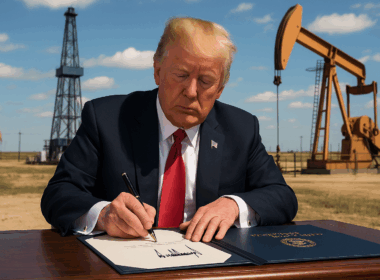
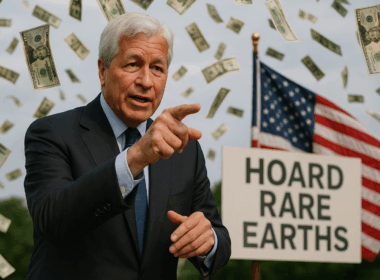



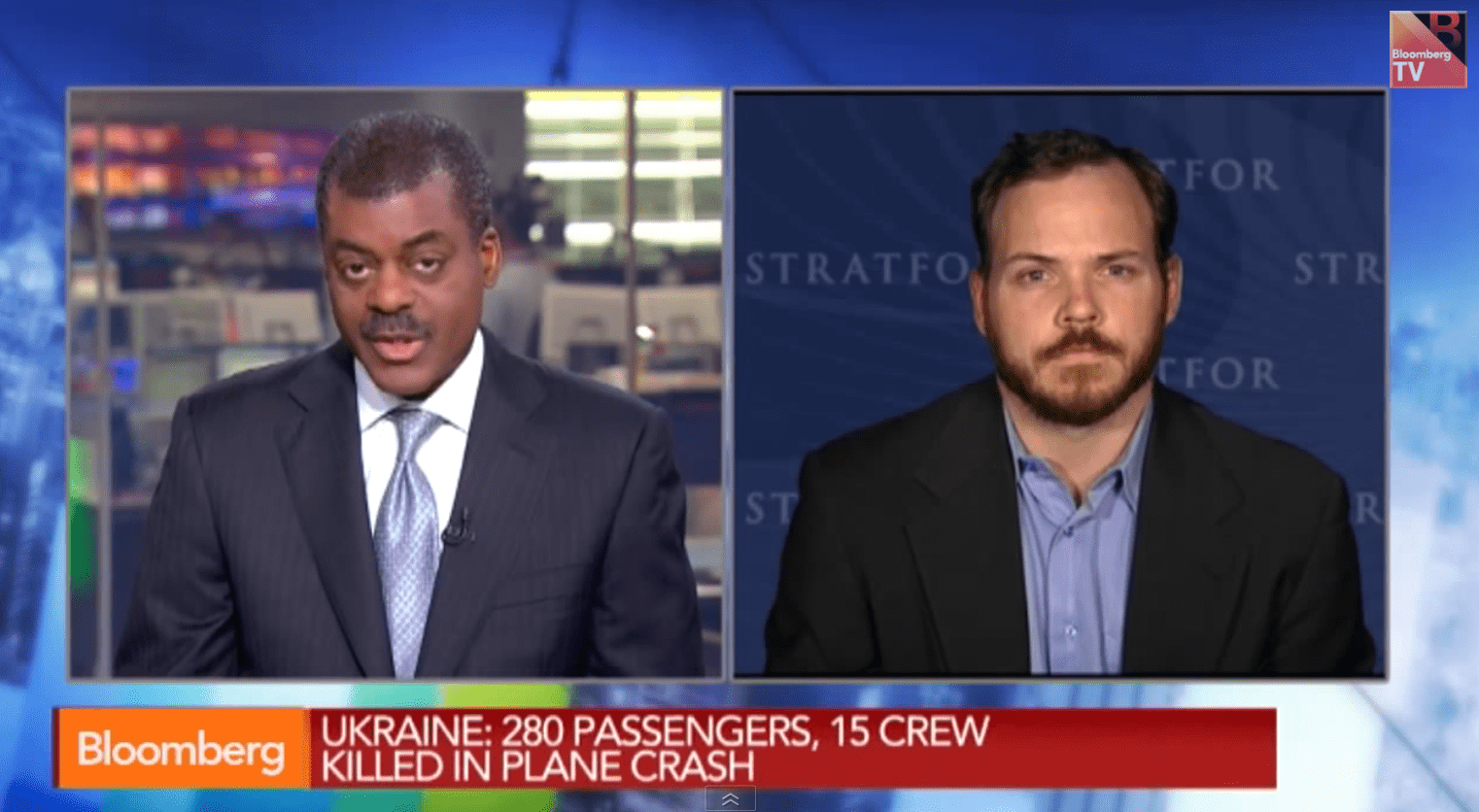
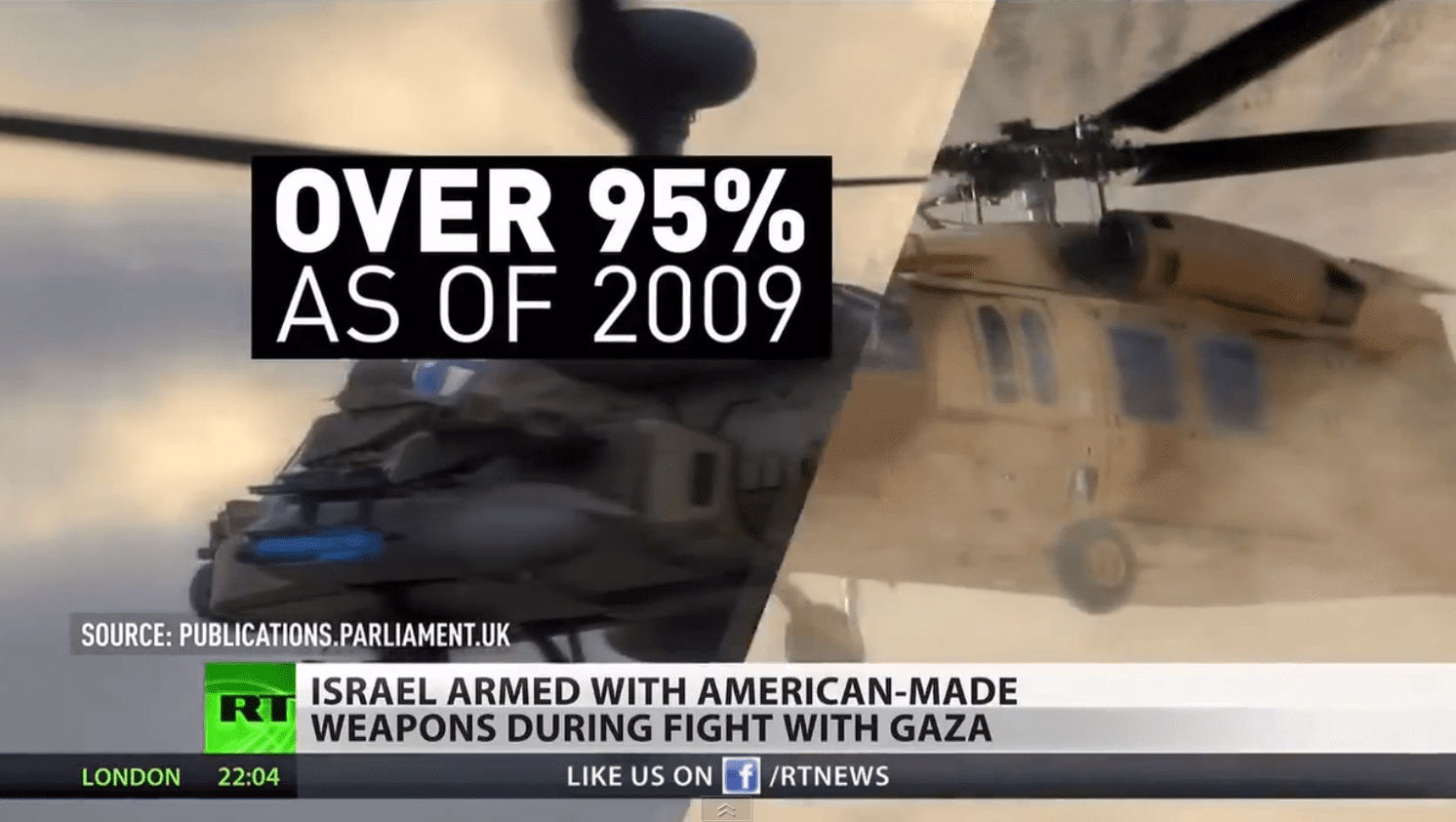
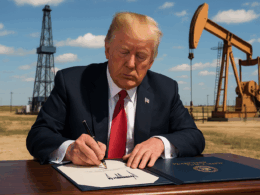
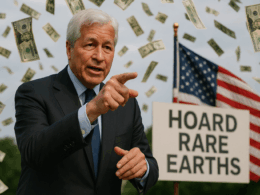


It is great to see the creation of this bank by the BRICS nations. World will be a better place when it gets rid of dollar and reliance on western governments. Need to have balance of powers and not the monopoly of power..
It’s high time that Putin was put-in his place (some remote pasture in Siberia), or we’re back to the cold war of the 60’s, which no sane person wants.
I believ that any of the countries in the BRICS do not offer the stability that the “west” has to offer and they will eventually allow countries highly influenced by religion and 6th century politics and therefore become un attractive to borrower nations
“the BRICS do not offer the stability that the “west” has to offer”–
Wow…that sounds about as brainwashed as one can get!! Ok, well, I guess that depends on how one (you) defines “stability.” Sure, a prison can offer “stability”–three meals a day, a bed, and a routine. Be my guest. But most of thinking humanity that is NOT brainwashed nor has its head stuck in the sand or up its nether pore wants FREEDOM much more than so-called stability…that is, a stability that is chosen for them, the “freedom” of serfdom.
Unfortunately, most Westerners, esp. Americans, have no clue that they are and have been trading in their freedom(s) for the stability of economic emprisonment. Much of the rest of the world sees and understands. Best of luck to the BRICS, who, though not “perfect” people or govts or rulers, know who the bully is…and it’s not Putin or Russia or China or anyone else “out there”…it’s the USGovt, which is no longer WeThePeople, in cahoots with an oligarchy of a few rich and powerful Westerners (mainly those who control the central banks and its central bank (the BIS) who control much of the wealth of the world through their counterfeiting scheme and want to maintain that control for as long as possible, ie, through ongoing and nearly infinite creation out of nothing of the petrodollar, aka the Federal Reserve Note, aka the USDollar.
Interesting details ……. but no surprise ….. it’s time for the “world government” to ease it’s grip on Obama’s Government, the US economy and the EU.…………. It’s all to obvious what the real plan is and the BRICS with about 40% of the world population will soon convince enough countries to follow their directions – representing eventually soon the majority of the world population.
Perhaps Putin can soon be called the saviour of the world.
Putin the savior of the world? What are you smoking?
First of all there is no logical reason why any nations currency requirements should need to be borrowed into existence as debt. Every nations natural resources can serve as collateral for its government to create the currency necessary to finance needed infrastructure construction thereby employing and creating jobs for its citizens while utilizing its natural resources productively for the benefit of its citizens. By employing a CREDIT instead of debt based system a country would only need to “tax back” the actual cost of all needed infrastructure over its anticipated useful life while totalling avoiding the middle man cost of debt financing.
MYRON!!!
I read your stuff on Gumshoe, totally agree with you. Wish more people knew this.
Re harsh terms by Western banks
I note that you did not specify to wht harsh applies. I assume that you at least include social and environmental safeguards that are usual prerequistes of loans and covenants. I further note that these loan covenants are routinely contravened and such, not enforced. Or did you refer to the financial terms that often include long periods of forgiveness and terms others can only dream about.
It will be interesting to see how poor nations with lots of potential resource wealth will fare under BRIC conditions. Given the partners in the group, one thing is for certain: the environment and social safeguards will suffer.
‘Lender to Women Leads Push to Get Poor to Banks in India’
What role will microbanks play in the BRICS countries other than India, where the ratio of poor people – ESPECIALLY THE MORE RELIABLE WOMEN – to rich is so much higher? I doubt very much that there will be any difference to the same old story of a Few getting obscenely rich while the millions of Poor just get more hungry.
Dear Equedia
regarding BRICS banking vs IMF and WB – there is but one flaw –
The IMF – the G7 – Nato – OAS – and other such organizations have one thing in common – that is they are in common ideologically – they are not the east – hey are not the middle east – they are not asia or south asia – but they are in turn those who at one time or another have ruled these other entities – either by force or by colonization – or by trade – each country is for the most part content at home with in its own borders – yes yes UK has Scotland and North Ireland Canada has Quebec and Spain has the Basque and USA has 50 such separate republics recognized right in the constitution – but for the most part there is a chicken in every pot and a beer in the hands of those who desire one – and more importantly – there is the possibility of reading as many books as one wants – the possibility of owning as much property as one desires and the possibility of gathering in and saving as much money as you can grasp in any combined or single sitting – civil war is very infrequent – debate and disagreement is encouraged and fostered (if not festered by the press) and generally people have the freedom to move about from area to area with in the confines of any given country, with nothing more than the shirt on their back and with in a brief period of time commence to enjoying a lifestyle very similar to the one just abandoned in the previous area. further to that – in nearly every $ country there is a notion that if you are trod upon by bullies from state or family you can have access to the “king” through the courts and may even find an empathetic jury or judge – even if you have committed the most heinous of crimes
BRICS on the other hand are traditionally isolationist – anti-trade – factional at home and abroad – often practice suppression of debate and do nothing to foster or fester differences of opinion – where there are any signs of nationalism or regional pride there is an almost palpable tension between any party who does not wear the proper t-shirt or sweater, or show from the caste whose territory one finds themselves in – Stories of justice being meted out to victims of the crime in such barbaric fashion that the victims are not only blamed for the consequence of the crime but the circumstances of it as well – sentenced to repeated blows from the jury of peers often made up of family members guided by a sense of justice and honour that would make The Good The Bad and The Ugly look like nursery rhyme fodder – and we expect these countries to get long in a financial structure – no wonder the HQ will be in China – where else – Russia – on the brink of civil war – almost daily on so many fronts it is hard to keep track -Brazil – surrounded by a curry of governments that make any warlord pale in comparison – South Africa – indeed how quickly Pretoria forgot the days of embargo when policy was to remain in a state of isolated feudalistic slavery ahhh the newly enlightened – how quickly they seize the potential reigns of power – believing that if they ally themselves with such giants – they too will be perceived as giants – missing the point that size does not a giant make –
I recall an editorial back in the 80’s when the usa was looking at Afghanistan and it pointed to how highly disciplined Russian soldiers had failed once they arrived at the gates of free heroin and hash and the editorial begged the question – how then would American soldiers fair- they who already dabbled in the “dark” arts of the countries offerings –
which brings us to the real crux of the story – WWI was an Opium war – and the rest of the world is seeking a place to stash $ now that USA has such stringent rules regarding transactions over 10,000$ not to mention FICA and Canada Revenue seeking hidden $ in off shore accounts – – so traditional economists will dress up the shenanigans as 1st 2end and 3rd world lenders and borrowers – the real movers of money around the world know it is all about financing arms and moving drug money from place to place – not so much the Dogs of War as it is the Poppy Seeds of Hope
The World Bank and IMF was set up knowing perfectly well that it was nothing more than an organised crime syndicate and the US as the Don. Perhaps this will free the oppressed countries from the bonds of their exploitation. I hope the BRICS nations have the strength to handle the sanctions, pushback and dirty tricks that will be used to counter their efforts.
Hey Blair
First off, WB and IMF are completely different entities. You might want to check the progress achieved in less-developed nations before you spew out such rubbish. Secondly, do you really believe that development aid from a BRICS bank will be anything but exploitation? I don’t know why China would participate anyway since it does a great job on its own, neglecting all sorts of safeguards under the guise of not wishing to interfere in domestic procedures and leaving behind boatloads of plastic goods.
It’s about time.
It’s about time.There are going to be problems,these countries are not friendly,if they stick together,it will be competition,Us also will correct its behavior hopefully print less dollars.
The problem is European have a very short memory. Stalin collaborated with the German and the French stayed on the fence when the AXIS started their effort to control their neighbors and the WORLD. They paid a very high price. I just hope we will not see french planes or ships destroyed by the MISTRAL THEY SOLD TO RUSSIA. Thank GOD we live on big island (self-sufficient) called NORTH AMERICA.
With the new “Bank” created by the BRICS, will the transactions be in USD or in their currencies. Would the funding of the “Bank” be in USD?? I had read that they will continue to use USD, if so how would it impact on the dedollarization of the USD??
Thanks,
Phang
Bla Bla Bla. What are you so worried about??? The French are selling American technology to Russia. The Germans are dealing with the Iranians. They should be sanctioned/monitored for being untrustworthy. And Russia forgave Cuba 90% of its debt. So what? There’s more money in Bangor ME than Cuba. The Americans can devalue their money by 50% tomorrow. The stock market can drop 70%. We’ll still be better off than everyone else. You can’t eat gold or currency. North America has half the world’s food. It leads the world in fresh water,plenty of timber and assorted minerals. Hundreds of years worth of energy (oil, natural gas, coal…) Alberta sends oil to U.S., but they don’t need it all so they’re trying to send it out through B.C. and Texas. Saskatchewan and Newfoundland haven’t started pumping yet. Never mind what’s north of Canada/Alaska. Leaders in renewable resources (For example, Province of Newfoundland in Canada will soon be 97% powered by water… will soon be selling extra hydro power to New England across the border… drive into Nova Scotia and enjoy the windmill farms… California leads in solar power and battery operated cars when they’re needed in the year 2200.) A fleet of American nuclear submarines are prepared to defend this position. If the Russians and Chinese want to take a turn policing the world (and paying billions to states in Pakistan, Egypt…) let them. Until Canada and Australia turn on the U.S., there is no problem.
The problem with developing nations are not lack of availability of funds but responsible borrowing and policies by their governments. Does it now mean that developing countries can borrow at relaxed repayment terms? Or if they get into financial trouble they can just walk away from their debts without consequences? 5 of the BRICS can hardly afford to lose the capital they put into the new bank. This new bank seems to me to be a way for China to gain influence in lucrative markets. Will they be more willing to forgive debt or will developing nations just swop one financial master for another? It seems to me a world currency is the answer where all countries subscribe to upholding its value. This will take currency manipulations for short term financial gain out of the equation. But the world is far away from doing this because it is far to easy to devalue your own currency to gain favorable trade terms. The Americans tried devalueing the dollar and then other nations just devalued their currencies with it. The Europeans tried and failed with the Euro. The Japanese is busy trying with the Yen and they too will fail. The strong dollar has not brought the USA prosperity only financial hardship and huge debt loads.
for too long now the U.S. has dominated the world with power, money and predominately LIES. they have to be the most arrogant nation on the planet. they have robbed so many other countries of resources, money, etc. it is time the world starts paying them back in kind. the fed reserve bank just prints money and does not have anything to back it up. now, they are so deep in debt, they cannot pay back what they owe and now a few countries have decided enough is enough and will bankrupt the U.S. by starting up their own bank. koodoos to them. the u.s. is under the false impression that the world is afraid of their power but this is not true any longer. there are leaders out there who do not give a damn about the U.S. l don’t think too much of Russia , Chinese, etc, but at least there are other powers who have the balls to tell the U.S. they have had enough and if they have their choice, the U.S. will rot in hell. hopefully the U.S. public will wake up and see this in time before the fed reserve and U.S. gov. totally takes away all their rights. l hope for the best for the U.S. citizens but it may already be too late for them.
I’ve been waiting for this to happen. Its about time that countries had the courage to stand up to the controlling banks!
Sometimes its embarrassing to be a citizen here in the U.S.
I would like to put money into the Brics Bank. Does anyone know how to
get an account, or is it possible?
At last!
The US has dominated the world without mercy for so long now. I just hope Canada doesn’t go down with the USA ship. They are not our friends. Bullies don’t have friends, just those who act like buddies so as to avoid being beaten up. We need to make this work for Canada, and ignore the posturing of the States.
It’s time that this merciless grip on the throats of the nations of the world is released. At long last. Thank you Mr. Putin.